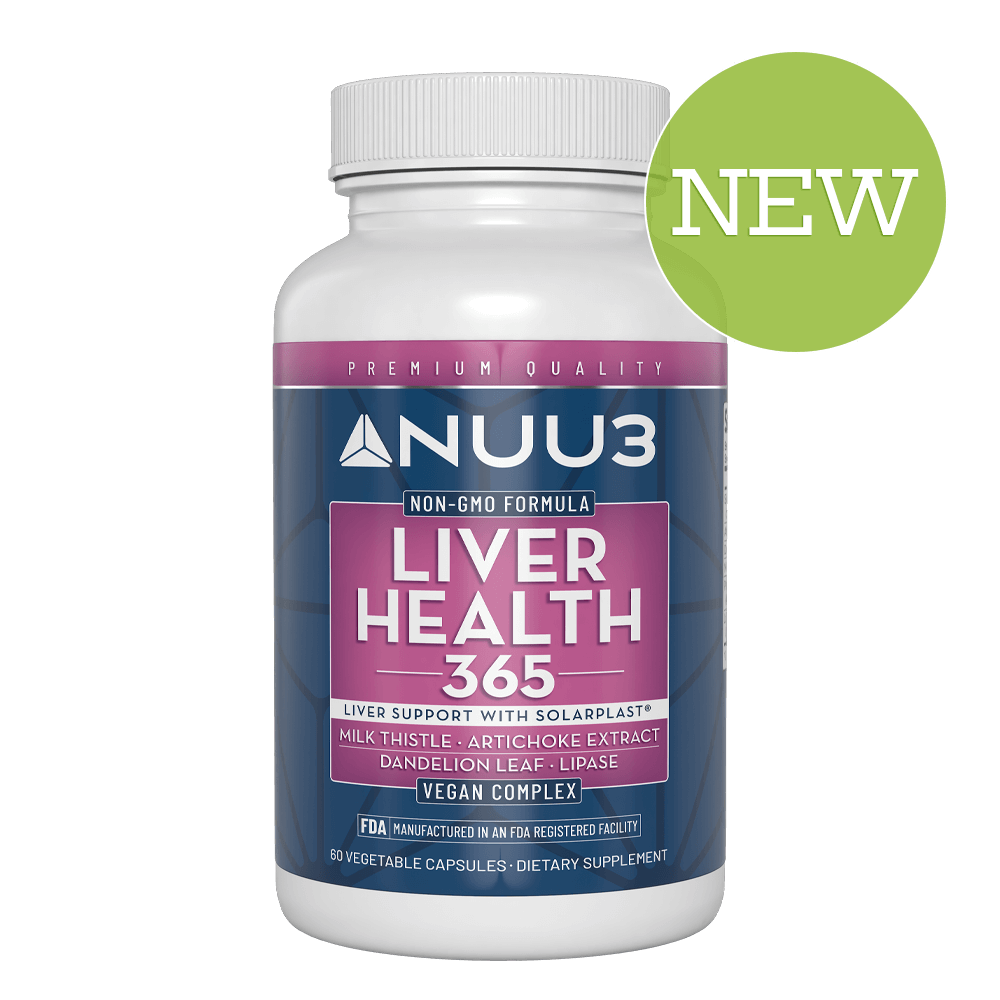Recently, the wellness world has highlighted the importance of emotion regulation, and for good reason. High stress and cortisol levels can have harmful effects on your body.
Chronically elevated cortisol levels can lead to symptoms like gastrointestinal upset, depression, anxiety, blood sugar dysregulation, and pain disorders.
Did you know high cortisol levels can even lead to weight gain?
That stubborn weight you’ve been trying to shed may not have anything to do with your diet but your stress levels. Read on to learn how to lower cortisol levels and lose weight.
What Is Cortisol and How Does it Affect Your Body?
Cortisol is a steroid hormone that your adrenal glands produce. Cortisol’s main role is regulating our body’s response to stress. Normal cortisol levels control critical bodily functions. Cortisol does the following:
-
Controls and reduces inflammation
-
Regulates blood sugar
-
Controls your sleep-wake cycle
-
Regulates blood pressure[1]
When constantly elevated, cortisol can negatively impact your overall health. It’s common for individuals to experience cortisol belly fat. This refers to weight gain resulting from chronic stress and related mechanisms, such as appetite increase, high blood sugar levels, and sleep disruptions.
Fortunately, we can learn how to lower cortisol levels and lose weight by understanding what triggers its production.
What Triggers the Production of Cortisol?
As mentioned above, cortisol is a steroid hormone. Normal cortisol levels are necessary to carry out vital functions. Things that trigger cortisol production include the sleep-wake cycle, stress, exercise, and low blood sugar.
It is usual for the body to increase cortisol production when responding to a perceived threat or stress. It’s only when the perceived stress is constant that cortisol levels can go haywire and cause dysfunction.
Your body controls cortisol levels through intricate communication between the hypothalamus, pituitary, and adrenal glands. This line of communication is known as the hypothalamic-pituitary-adrenocortical (HPA) axis.
Based on feedback from the body, the hypothalamus releases corticotropin-releasing hormone (CRH). This triggers the pituitary gland to release an adrenocorticotropic hormone (ACTH). ACTH then signals the adrenal glands to produce glucocorticoids, including cortisol.[2]
A negative feedback loop regulates the HPA axis function. When blood cortisol levels fall, the hypothalamus releases CRH, and the rest of the hormone cascade follows. When cortisol levels become too high, the hypothalamus and pituitary gland suppress their production of CRH and ACTH.
When cortisol levels become chronically elevated, the HPA axis begins to dysfunction. Sometimes, the HPA axis doesn’t correctly respond to high blood cortisol levels and fails to turn off, resulting in hyperarousal or anxiety.[3]
High cortisol, or HPA axis dysfunction, can lead to a host of symptoms such as:
-
Slow wound healing
-
Irregular menstrual cycles
-
Anxiety
-
Depression
-
Digestive disturbances
-
Muscle tension
-
Cardiovascular disease
-
Poor memory and focus
-
Weight gain[4]
How Does Cortisol Cause Weight Gain?
Chronically elevated cortisol can lead to weight gain. Some refer to it as “cortisol belly.” Cortisol leads to weight gain through several mechanisms: blood sugar dysregulation, overeating, and disturbed sleep.
Elevated cortisol levels stimulate gluconeogenesis. Gluconeogenesis is when the body attempts to stabilize blood sugar levels by tapping into glucose sources in the liver and muscle tissues.[5] The problem is that sugar is continuously dumped into the bloodstream if cortisol levels are constantly high. If you don’t immediately use this sugar, it can be stored in fat tissue.
Cortisol can also lead to weight gain through overeating. When your blood sugar levels are uncontrolled, then cravings can hit. Cortisol itself can stimulate the appetite.
Lastly, cortisol can lead to weight gain through sleep disturbances. Poor sleep can lead to increases in the hormone ghrelin and decreases in the hormone leptin. Ghrelin increases your appetite, while leptin signals satisfaction and feeling full.[6]
Don’t be discouraged if you feel cortisol has hijacked your appetite and weight. Keep reading to learn how to lower cortisol naturally.
How to Lower Cortisol Levels and Lose Weight
Various diet and lifestyle interventions can help you lower cortisol naturally.
There are certain foods that lower cortisol. You can also incorporate several stress-reduction techniques and dietary supplements to help you reduce cortisol belly fat.
Diet: Nature has gifted us with specific foods that lower cortisol. The foods that lower cortisol are usually packed with B vitamins, calming minerals, and omega-3 fatty acids and are blood-sugar balancing.[7] Try adding more of the following to your diet:
- Beef
- Chicken
- Eggs
- Avocados
- Chia seeds
- Flax seeds
- Walnuts
- Salmon
- Extra virgin olive oil (EVOO)
- Bananas
- Dark chocolate
- Pumpkin seeds
- Leafy greens
- Quinoa
- Greek yogurt
- Yoga
- Meditation
- Breathwork
- Talking with a licensed therapist
- Moderate exercise
- Taking walks in nature
- Reading
Dietary Supplements: It’s worth considering adding diet supplements formulated to promote calm and relaxation to your routine.
The NUU3 Keep Calm Gummies are a great way to relieve stress and stimulate normal cortisol levels. The supplement features fast-acting ingredients that reduce anxiety, such as Ashwagandha, gamma-aminobutyric acid (GABA), L-theanine, lemon balm, and chamomile. Many customers have reported the NUU3 Keep Calm Gummies have helped them reduce work-related stress, calm down quickly, and enjoy life without anxiety.
Another stress-relieving supplement is the NUU3 Deep Sleep Gummies. These gummies include scientifically studied, anxiety-relieving, and relaxation-promoting ingredients like chamomile, lemon balm, and lavender. If you’re experiencing disturbed sleep from high cortisol levels, you should consider trying the NUU3 Deep Sleep Gummies. Regulating your sleep-wake cycle can help crush cortisol-related cravings and reduce cortisol belly fat.
If you feel like your metabolism has taken a hit from elevated cortisol, the NUU3 Apple Cider Vinegar Gummies may help. While working on reducing stress and getting your cortisol levels in check, these gummies can help improve digestion, strengthen your immune system, and encourage healthy weight loss.
In summary, if you want to know how to lower cortisol levels and lose weight, start simple.
Focus on eating healthy, incorporating foods that lower cortisol, practicing stress reduction, and considering supplements.
FAQs
Here are the answers to how one can achieve normal cortisol levels and lose cortisol belly fat.
How Can I Lower My Cortisol Quickly?
Things you can do to lower your cortisol levels quickly include eating foods that lower cortisol, practicing yoga, meditating, performing progressive muscle relaxation, going on walks in nature, and taking supplements with stress-relieving ingredients. These supplements could include the NUU3 Keep Calm Gummies or the NUU3 Sleep Support Gummies.
What Are Normal Cortisol Levels?
You can measure cortisol levels using blood, saliva, or urine. When using a blood test, normal cortisol levels should be between 6 and 23 mcg/dl when taken at 8 am.[8] “Normal” blood ranges can vary depending on the lab.
Can You Gain Weight With Low Cortisol?
Just like high cortisol levels, low cortisol can lead to weight gain. Glucocorticoid receptors exist in almost every body tissue, including the thyroid. Low cortisol levels may negatively impact thyroid function. You can see this in extreme cases of HPA axis dysfunction, such as Addison’s disease.[9] An underactive thyroid can lead to weight gain.[10]
Conclusion
Cortisol isn’t the enemy. Our bodies need it at normal levels to carry out essential bodily functions. It’s only when cortisol levels are chronically elevated that you can start to experience symptoms such as anxiety, digestive disturbances, and weight gain.
There are many things you can do to promote a healthy stress response. When considering how to lower cortisol naturally, start simple.
Eat a healthy diet with foods that lower cortisol, incorporate stress-reduction techniques, and consider relaxing supplements.
You can refer to the previous section titled “How to Lower Cortisol Levels and Lose Weight” to find our top picks for supplements that may help you relax and lose weight.
It’s necessary to consult with your doctor or a healthcare professional before taking supplements and to rule out other conditions you might have and receive the support you might need.
References
1] ↑https://my.clevelandclinic.org/health/articles/22187-cortisol
2] ↑https://www.ncbi.nlm.nih.gov/pmc/articles/PMC4867107/
3] ↑https://www.ncbi.nlm.nih.gov/pmc/articles/PMC7364861/
4] ↑https://www.mayoclinic.org/healthy-lifestyle/stress-management/in-depth/stress/art-20046037
5] ↑https://www.ncbi.nlm.nih.gov/pmc/articles/PMC5373497/
6] ↑https://www.health.harvard.edu/blog/snooze-more-eat-less-sleep-deprivation-may-hamper-weight-control-202204042718
7] ↑https://health.clevelandclinic.org/eat-these-foods-to-reduce-stress-and-anxiety
8] ↑https://www.uclahealth.org/medical-services/surgery/endocrine-surgery/patient-resources/patient-education/endocrine-surgery-encyclopedia/cortisol-test
9] ↑https://www.nhs.uk/conditions/addisons-disease/diagnosis/
10] ↑https://www.mayoclinic.org/diseases-conditions/hypothyroidism/symptoms-causes/syc-20350284











